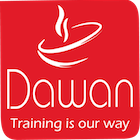Goals
- Learn to install and administer Windows Server
- Manage users
- Discover NTFS
- Configure a network printer
- Manage Windows Server security
- Protect and monitor your server
- Install and configure Terminal Server
Program
Windows Server
Preparing for installation
Different editions of Windows Server 2012
Installing Windows 2012 Server
Upgrading to Windows 2012 Server
Overview and use
Managing server clusters
Support for virtual servers
Exporting DashBoard settings
Understanding user accounts
Required items for new user accounts
Creating a user account
Defining criteria for passwords
Defining properties for passwords
Customizing User Settings Using User Profiles
Managing User Data by Creating Home Directories
Understanding Groups
Developing a Policy for Creating Security Groups
Using predefined groups
Types of disk storages available in Windows Server
Partitioning a basic drive
Creating volumes on a dynamic drive
Performing common tasks to manage disks
Solving configuration issues disks and partitions
Description of NTFS Permissions
Applying NTFS Permissions by Windows Server
Assigning NTFS Permissions
Compressing Data on an NTFS Partition
Configuring Disk Quotas on NTFS Volumes
Description of Shared Folders
Creating Shared Folders
Combination of NTFS Permissions and Shared Folders: SMB, NFS, iSCSI
Configuring Shared Folders
Using DFS Using the FSRM File Server Resource Manager
Configure Storage Spaces in Windows Server 2012
Backup / Restore of Windows Server
Duration
3 days
Price
£ 1190
Audience
Network and systems administrators
Prerequisites
Network knowledge
Reference
WIN132-F
SQL Server
History, versions and licenses of SQL Server
Roles and stakeholders of a SQL Server database
Other concurrent systems
Tools associated with SQL Server
Installation process: planning, updating
Methods of authentication
Verification of the installation
Type of files: .mdf, .ndf, .ldf
Administrative objects
Workshop: Installation and configuration of SQL Server – Discovery of the SQL Server Management Studio tool
General organization: tables, views, constraints, index, procedures, …
Specification and modeling methods
Types and particular specifications of tables and fields
Creation of data structures
Management of storage spaces: files, groups of files
Insertion and import of data
Workshop: Creation of databases and management of files
SQL language; MS SQL standards and particularities
Data definition statements
Index types
Constraint management
Data manipulation: insertion, updates, restriction, projection, calculations
Advanced structures, multiple joins, views, stored procedures
Transact SQL programming: functions, procedures
Elements of temporal optimization of queries
The documentation available
Workshop: Creation and manipulation of database data
Users and security: authentication modes, accounts, roles, permissions
Logs, possible backups and tools
Work on history and cancellations
Monitoring by alerts and triggers
Various automation of administration tasks
Workshop: User management – Backups and restores
Passing the certification (if provided for in the funding)
Sessions
Contact us for more informations about session date



